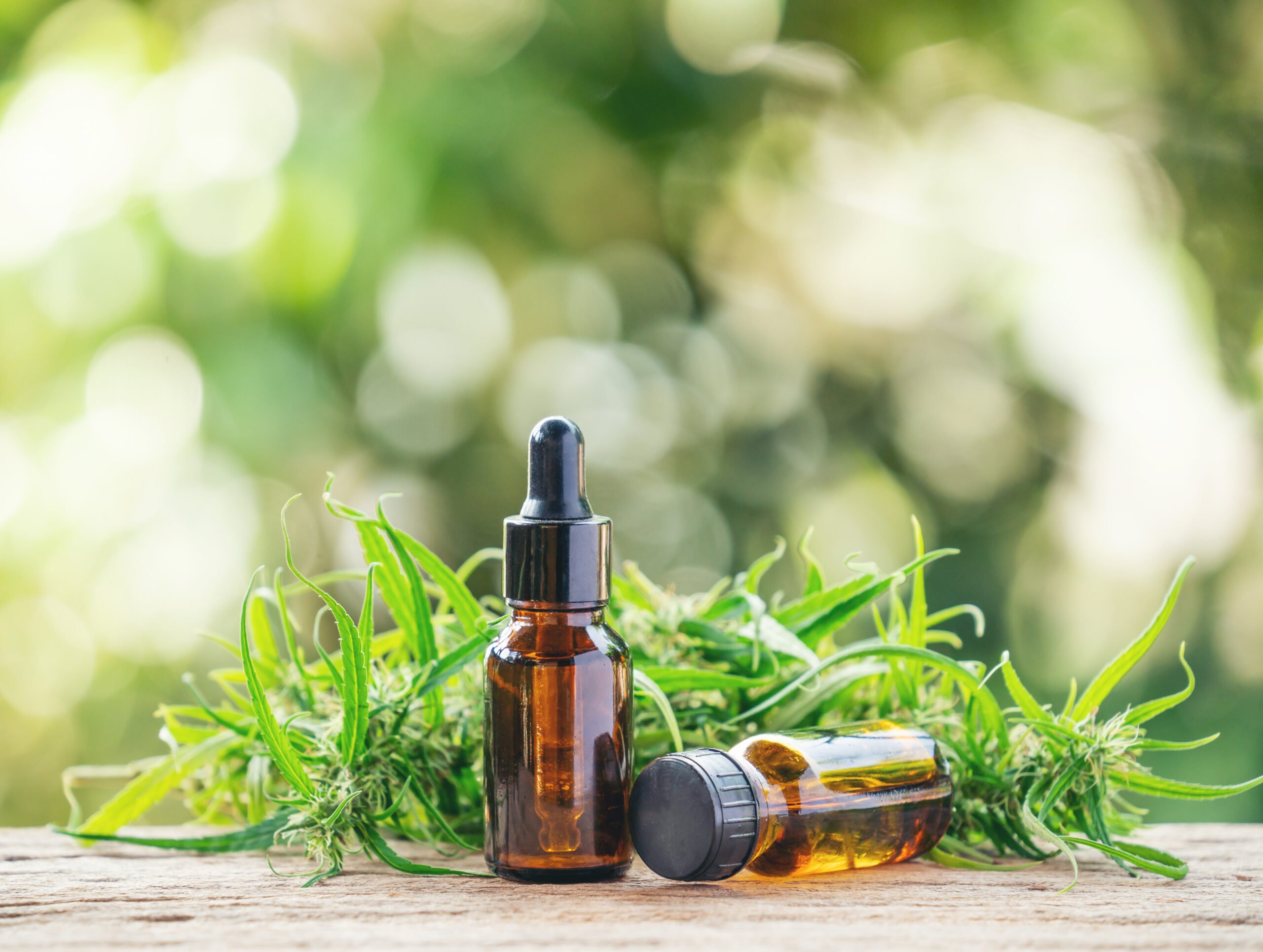In recent years, cannabidiol, popularly known as CBD, has risen in prominence as a health and wellness supplement. CBD, which is derived from the cannabis plant, is now found in a variety of products ranging from oils and tinctures to edibles and topicals, such as CBD cream. Despite its popularity, there remains a wealth of misinformation about what CBD is and how it works. This article aims to demystify CBD, separating fact from fiction and helping readers better understand its uses and potential benefits. Keep reading to educate yourself on the facts of CBD and to clarify any misconceptions you may have.
Understanding CBD: What Is It?
CBD is one of the more than 100 cannabinoids found in the Cannabis Sativa plant. Unlike its more famous cousin, delta-9-tetrahydrocannabinol (THC), CBD products are not psychoactive, meaning they won’t get you high. Its non-intoxicating nature has made it a favorable option for people who are looking for relief from various ailments without the mind-altering effects of marijuana or certain pharmaceutical drugs.
The Difference Between CBD and THC
For many people, there is still considerable confusion when differentiating between CBD and THC. Both are naturally occurring compounds found in cannabis plants but have drastically different effects on the human body. THC is the main psychoactive compound in marijuana that gives the sensation of getting ‘high.’ CBD, on the other hand, is not psychoactive, and consuming it won’t lead to alterations in consciousness or perception. Some research suggests that CBD products may even counteract some of the effects of THC.
Misconceptions and Myths Surrounding CBD

Despite its growing popularity, several misconceptions and myths about CBD persist. For instance, some people still mistakenly believe that CBD can get you ‘high,’ while others might believe that all CBD products are illegal. There is also the misconception that CBD is a ‘cure-all’ miracle compound, which can lead people to forgo conventional medical treatments in its favor. It’s crucial for the public to rely on science-based information and consult with health professionals when considering CBD products as a supplement or therapeutic agent.
The Legality of CBD Topicals
One of the most significant sources of confusion regarding CBD revolves around its legal status. It’s critical to note that not all forms of CBD are legal. The legality of CBD products largely depends on the source of CBD products and the specific laws in a given jurisdiction. In the United States, for example, the Agriculture Improvement Act of 2018, also known as the Farm Bill, made hemp-derived CBD legal at the federal level as long as it contains no more than 0.3% THC. Conversely, CBD cream derived from marijuana remains illegal under federal law but may be legal in states that have legalized medicinal or recreational marijuana.
CBD Products and Methods of Consumption
There is a variety of CBD products available on the market, providing users with multiple methods of consumption to suit their preferences and needs. CBD oil, the most popular form, can be taken sublingually or added to food and drinks. Edibles, such as gummies, are another popular choice due to their ease of use and long-lasting effects. Topical applications like CBD creams and lotions are ideal for localized relief, and they are often used for issues like muscle pain or skin conditions. Vaping CBD is another method, preferred by those looking for quick effects. However, potential health risks associated with vaping should be taken into consideration.
CBD and the Human Body
CBD cream interacts with the body’s endocannabinoid system (ECS), a complex biological system that plays a key role in regulating various functions such as sleep, mood, appetite, and immune response. While the precise ways cannabidiol interacts with the ECS are still under scientific investigation, current evidence suggests that CBD cream can enhance the ECS’s function by increasing the body’s own endocannabinoid levels or interacting with key receptors.
The Potential Benefits
A growing body of scientific research is uncovering the potential therapeutic benefits of cannabidiol. The most substantiated use of CBD is in treating some of the cruelest childhood epilepsy syndromes, such as Dravet syndrome and Lennox-Gastaut syndrome. In these cases, CBD cream has been shown to reduce the number of seizures, and in some instances, stop them altogether.
Preliminary research also suggests that cannabidiol may help with anxiety, chronic pain, and insomnia. It has anti-inflammatory properties, making it potentially useful in managing conditions like acne and psoriasis. Moreover, cannabidiol has shown promise in treating symptoms related to cancer treatment, such as nausea and vomiting. However, more extensive and conclusive studies are needed to fully understand CBD’s efficacy and potential uses in these areas.
CBD for Pets: What We Know So Far

Interestingly, CBD oil isn’t only being explored for its benefits to humans. Pet owners are increasingly turning to CBD products to help manage various health conditions in their pets, including anxiety, pain, and seizures. Much like in humans, CBD interacts with the endocannabinoid system in animals, potentially offering similar benefits. However, research into CBD’s effects on pets is still in the early stages. Veterinarians often caution pet owners to consider the potential risks and to consult with a professional before administering cannabidiol to their pets.
CBD and Mental Health
Growing research indicates that CBD cream may be a useful tool for managing a variety of mental health conditions. Studies suggest that CBD may have significant anti-anxiety effects and could be used as a treatment for conditions such as panic disorder, social anxiety disorder, and post-traumatic stress disorder (PTSD). Additionally, some research points towards the use of CBD cream and other products as a potential aid in the treatment of various sleep disorders, including insomnia. It’s essential to note that while the initial research is promising, more extensive studies are required to confirm these findings.
The Safety and Side Effects of CBD
CBD cream is generally considered safe and well-tolerated. However, it can cause side effects in some people. These can include fatigue, diarrhea, changes in appetite, and potential interaction with other medications. Therefore, it’s crucial to consult with a healthcare provider before starting to use cannabidiol, especially for people with underlying health conditions or those taking other medications.
The Importance of Quality Control in CBD Products
The CBD topical market has grown exponentially, leading to an influx of products on the market. However, not all CBD products are created equal. Because the industry is still relatively new and lacks consistent regulation, it’s vital for consumers to carefully scrutinize CBD products before purchase. This includes understanding the differences between full-spectrum, broad-spectrum, and isolate cannabidiol, verifying the source of the hemp, and checking if the product has been third-party tested for potency and purity.
Wrapping Up: CBD as a Promising Compound, But Research Continues
CBD is a complex and intriguing compound. While scientific research has revealed its potential in treating a variety of health conditions, much is still unknown, and further studies are necessary. However, the ongoing research, coupled with anecdotally reported benefits, suggests that cannabidiol holds a great deal of promise. It’s critical to keep in mind that CBD cream is not a magic solution and that it’s not suitable for everyone. As always, it’s crucial to consult with a healthcare professional before starting any new supplement regimen. In the meantime, the dialogue around CBD continues to evolve, helping to demystify this promising compound and separate fact from fiction.






